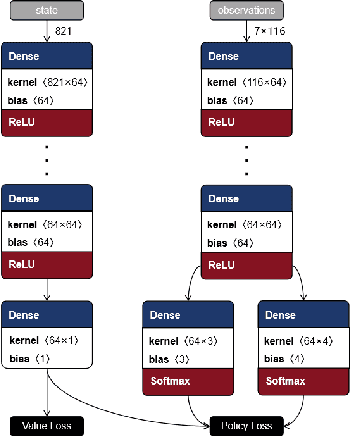Qichen Wang
AR2: Attention-Guided Repair for the Robustness of CNNs Against Common Corruptions
Jul 08, 2025Abstract:Deep neural networks suffer from significant performance degradation when exposed to common corruptions such as noise, blur, weather, and digital distortions, limiting their reliability in real-world applications. In this paper, we propose AR2 (Attention-Guided Repair for Robustness), a simple yet effective method to enhance the corruption robustness of pretrained CNNs. AR2 operates by explicitly aligning the class activation maps (CAMs) between clean and corrupted images, encouraging the model to maintain consistent attention even under input perturbations. Our approach follows an iterative repair strategy that alternates between CAM-guided refinement and standard fine-tuning, without requiring architectural changes. Extensive experiments show that AR2 consistently outperforms existing state-of-the-art methods in restoring robustness on standard corruption benchmarks (CIFAR-10-C, CIFAR-100-C and ImageNet-C), achieving a favorable balance between accuracy on clean data and corruption robustness. These results demonstrate that AR2 provides a robust and scalable solution for enhancing model reliability in real-world environments with diverse corruptions.
Effective Clustering on Large Attributed Bipartite Graphs
May 20, 2024Abstract:Attributed bipartite graphs (ABGs) are an expressive data model for describing the interactions between two sets of heterogeneous nodes that are associated with rich attributes, such as customer-product purchase networks and author-paper authorship graphs. Partitioning the target node set in such graphs into k disjoint clusters (referred to as k-ABGC) finds widespread use in various domains, including social network analysis, recommendation systems, information retrieval, and bioinformatics. However, the majority of existing solutions towards k-ABGC either overlook attribute information or fail to capture bipartite graph structures accurately, engendering severely compromised result quality. The severity of these issues is accentuated in real ABGs, which often encompass millions of nodes and a sheer volume of attribute data, rendering effective k-ABGC over such graphs highly challenging. In this paper, we propose TPO, an effective and efficient approach to k-ABGC that achieves superb clustering performance on multiple real datasets. TPO obtains high clustering quality through two major contributions: (i) a novel formulation and transformation of the k-ABGC problem based on multi-scale attribute affinity specialized for capturing attribute affinities between nodes with the consideration of their multi-hop connections in ABGs, and (ii) a highly efficient solver that includes a suite of carefully-crafted optimizations for sidestepping explicit affinity matrix construction and facilitating faster convergence. Extensive experiments, comparing TPO against 19 baselines over 5 real ABGs, showcase the superior clustering quality of TPO measured against ground-truth labels. Moreover, compared to the state of the arts, TPO is often more than 40x faster over both small and large ABGs.
Multi-agent Reinforcement Learning for Energy Saving in Multi-Cell Massive MIMO Systems
Feb 05, 2024



Abstract:We develop a multi-agent reinforcement learning (MARL) algorithm to minimize the total energy consumption of multiple massive MIMO (multiple-input multiple-output) base stations (BSs) in a multi-cell network while preserving the overall quality-of-service (QoS) by making decisions on the multi-level advanced sleep modes (ASMs) and antenna switching of these BSs. The problem is modeled as a decentralized partially observable Markov decision process (DEC-POMDP) to enable collaboration between individual BSs, which is necessary to tackle inter-cell interference. A multi-agent proximal policy optimization (MAPPO) algorithm is designed to learn a collaborative BS control policy. To enhance its scalability, a modified version called MAPPO-neighbor policy is further proposed. Simulation results demonstrate that the trained MAPPO agent achieves better performance compared to baseline policies. Specifically, compared to the auto sleep mode 1 (symbol-level sleeping) algorithm, the MAPPO-neighbor policy reduces power consumption by approximately 8.7% during low-traffic hours and improves energy efficiency by approximately 19% during high-traffic hours, respectively.
 Add to Chrome
Add to Chrome Add to Firefox
Add to Firefox Add to Edge
Add to Edge